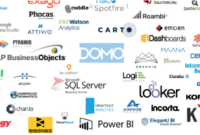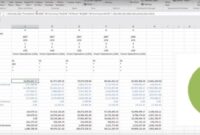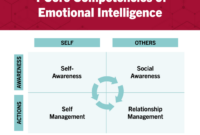Business intelligence analyst job – Embark on a journey into the fascinating world of business intelligence analysts, where data meets strategy. These professionals are the architects of informed decision-making, transforming raw information into actionable insights that drive business success. Join us as we explore the intricacies of this dynamic and rewarding career path.
Business intelligence analysts play a pivotal role in organizations, leveraging their expertise in data analysis, business acumen, and communication to uncover hidden patterns and trends. They empower businesses to make data-driven decisions, optimize operations, and gain a competitive edge.
Role Overview
Business Intelligence Analysts play a crucial role in today’s data-driven business landscape. They are responsible for collecting, analyzing, and interpreting data to help organizations make informed decisions and gain a competitive advantage.
Their primary job duties include:
- Identifying and defining business problems that can be solved with data analysis
- Collecting data from various sources, including internal databases, external data feeds, and market research
- Cleaning and preparing data for analysis by removing errors, inconsistencies, and outliers
- Applying statistical and data mining techniques to analyze data and extract meaningful insights
- Presenting data insights and recommendations to stakeholders in a clear and actionable manner
The role of a Business Intelligence Analyst can vary across industries. In some industries, they may focus on financial analysis, while in others, they may specialize in customer analytics or marketing analytics.
Skills and Qualifications

Essential hard skills for Business Intelligence Analysts include:
- Data analysis and interpretation techniques
- Data visualization and dashboarding tools
- SQL and other data querying languages
- Statistical software packages such as R or Python
Necessary soft skills and personal attributes include:
- Analytical and problem-solving abilities
- Strong communication and presentation skills
- Business acumen and understanding of industry trends
- Attention to detail and accuracy
Industry certifications and professional development opportunities can enhance the credibility and knowledge of Business Intelligence Analysts. Some popular certifications include the Certified Analytics Professional (CAP) and the Microsoft Certified Solutions Expert (MCSE): Data Analytics.
Data Analysis and Management
The data analysis process involves:
- Data collection: Gathering data from various sources, such as internal databases, external data feeds, and market research
- Data cleaning: Removing errors, inconsistencies, and outliers from the data
- Data preparation: Transforming the data into a format suitable for analysis
- Data analysis: Applying statistical and data mining techniques to extract meaningful insights
- Data visualization: Presenting data insights in a clear and actionable manner
Business Intelligence Analysts use a variety of techniques for data analysis, including:
- Descriptive statistics: Summarizing the data using measures such as mean, median, and mode
- Inferential statistics: Drawing conclusions about a population based on a sample
- Data mining: Uncovering hidden patterns and relationships in the data
- Machine learning: Building predictive models to identify trends and forecast future outcomes
Business Acumen and Communication
Business acumen is essential for Business Intelligence Analysts as it enables them to understand the business context and make data-driven recommendations that align with the organization’s goals.
A business intelligence analyst job is a highly sought-after position that plays a crucial role in the implementation and optimization of business analytics and business intelligence solutions. These solutions empower businesses to make informed decisions, improve operations, and drive growth.
By analyzing data and identifying trends, business intelligence analysts provide valuable insights that can enhance the effectiveness of business strategies and maximize ROI.
Effective communication is also crucial. Business Intelligence Analysts must be able to present their findings in a clear and actionable manner to stakeholders who may not have a technical background.
Best practices for stakeholder engagement and collaboration include:
- Understanding the audience and their needs
- Tailoring presentations to the audience’s level of technical knowledge
- Using clear and concise language
- Providing context and explanations
- Encouraging feedback and discussion
Technology and Tools

Common software and tools used by Business Intelligence Analysts include:
- Data visualization tools: Tableau, Power BI, Google Data Studio
- Data analysis tools: R, Python, SQL
- Data management tools: Hadoop, Hive, Spark
- Cloud computing platforms: AWS, Azure, GCP
Data visualization tools enable Business Intelligence Analysts to create interactive dashboards and visualizations that make data insights easy to understand.
Industry trends in data analytics technology include:
- Increased use of artificial intelligence and machine learning
- Adoption of cloud-based data analytics solutions
- Growing demand for real-time data analytics
- Emphasis on data privacy and security
Career Path and Advancement
The typical career progression for Business Intelligence Analysts involves:
- Junior Business Intelligence Analyst
- Business Intelligence Analyst
- Senior Business Intelligence Analyst
- Business Intelligence Manager
- Director of Business Intelligence
Opportunities for specialization include:
- Financial analysis
- Customer analytics
- Marketing analytics
- Healthcare analytics
Tips for career advancement and professional growth include:
- Continuously develop your skills and knowledge
- Seek out opportunities to lead projects and take on new challenges
- Network with other professionals in the field
- Stay up-to-date on industry trends and best practices
Summary
The business intelligence analyst job offers a compelling blend of analytical rigor and strategic thinking. By mastering the art of data interpretation and effective communication, these professionals become indispensable assets to any organization.
As the demand for data-driven insights continues to soar, the future of business intelligence analysts remains incredibly bright, promising a rewarding and impactful career path.
FAQ Guide: Business Intelligence Analyst Job
What are the key responsibilities of a business intelligence analyst?
Business intelligence analysts help businesses make better decisions by providing them with data-driven insights. One of the most popular business intelligence tools is looker business intelligence. Looker makes it easy for analysts to explore data, create visualizations, and build dashboards.
As a result, business intelligence analysts who are proficient in Looker are in high demand.
Business intelligence analysts are responsible for collecting, cleaning, and analyzing data to identify trends and patterns. They then use this information to create reports and visualizations that help businesses make informed decisions.
If you’re looking to break into the field of business intelligence, be sure to check out blog.dosenpintar.com business intelligence. This blog is a great resource for learning about the latest trends and technologies in business intelligence. You’ll also find helpful tips and advice on how to become a successful business intelligence analyst.
What are the essential skills for a business intelligence analyst?
Business intelligence analysts need to have strong analytical skills, as well as a deep understanding of business and data analysis techniques. They also need to be able to communicate their findings effectively to both technical and non-technical audiences.
What are the career prospects for business intelligence analysts?
Business intelligence analysts are in high demand, and the job outlook is expected to remain strong in the coming years. There are many opportunities for career advancement, both within and outside of the field.




